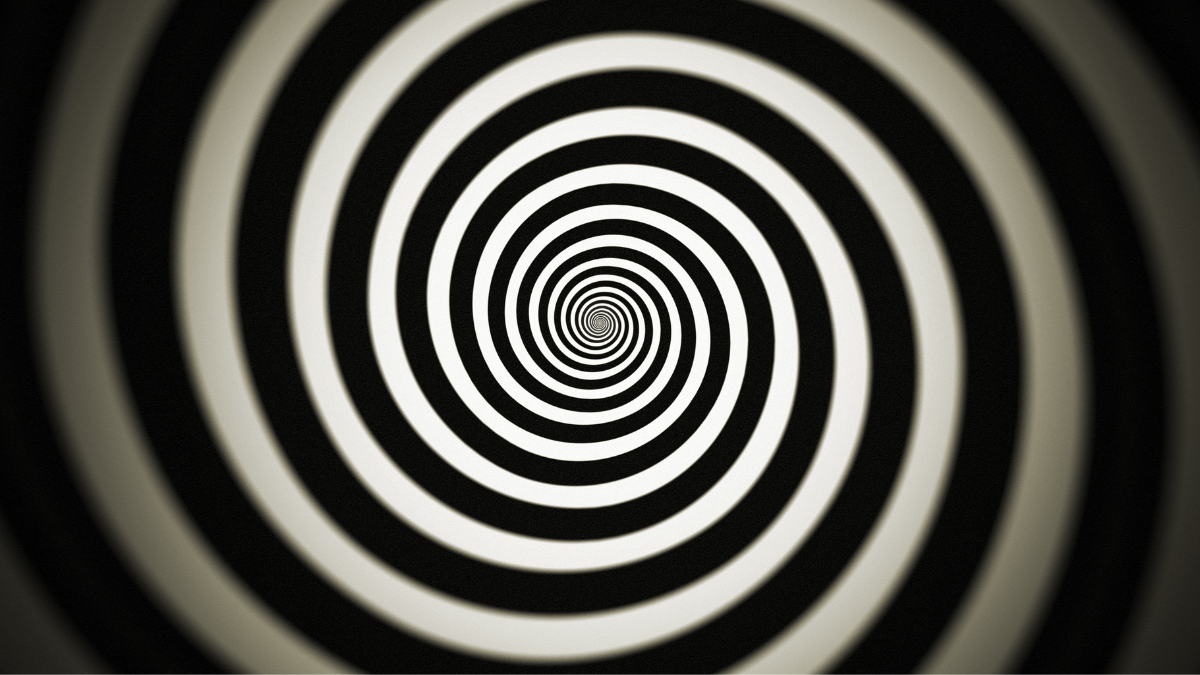Is hypnosis witchcraft? In this blog post, we explore the world of hypnosis to dispel the misconception that it is witchcraft. Delving into the history, science, and practice of hypnosis, we uncover its true nature as a scientifically recognized tool for positive change. By understanding the power of suggestion, the subconscious mind, and the ethical practice of hypnosis, readers can gain a clearer perspective on this fascinating practice.
Also Read: Can Hypnosis Make You Forget Someone?
We emphasize safety, regulation, and the therapeutic benefits of hypnosis, highlighting its role in personal growth and healing. Ultimately, we uncover the truth that hypnosis is a scientifically grounded practice, separate from any supernatural or magical elements.
Is Hypnosis Witchcraft in Short?

No, hypnosis is not considered witchcraft. Hypnosis is a psychological technique used to induce a state of focused attention and increased suggestibility. It is often used for therapeutic purposes, such as helping with habits, relaxation, and changing behaviors.
Witchcraft, on the other hand, is a spiritual or religious practice that involves the use of magic or supernatural powers. These are separate concepts and not related to each other.
Understanding Hypnosis: A Science or an Art?
Defining Hypnosis: Unmasking the Mystery
Hypnosis refers to a state of focused attention and increased suggestibility. It is often induced through relaxation techniques and verbal guidance by a trained professional.
Contrary to common misconceptions, hypnosis is not about taking control of someone’s mind but rather facilitating a state of deep relaxation and concentration.
The Historical Context of Hypnosis
Hypnosis has been practiced for centuries in various forms. Ancient civilizations, including the Egyptians and Greeks, explored altered states of consciousness. However, modern hypnosis as we know it today emerged in the 18th and 19th centuries.
It gained recognition as a legitimate practice through the work of prominent figures like Franz Mesmer, James Braid, and Sigmund Freud.
The Science Behind Hypnosis
Hypnosis as a Subject of Scientific Investigation
Throughout the 20th century, hypnosis became a subject of scientific study. Researchers began examining brain activity during hypnosis and exploring its potential applications in psychology and medicine.
Tremendous progress has been made in understanding the mechanisms underlying hypnosis, although there is still much to be explored.
The Power of Suggestion and State of Trance
Hypnosis relies on the power of suggestion and inducing a state of trance, where individuals become highly receptive to suggestions. The trance state is akin to being deeply absorbed in a book or movie, where one’s focus is narrowed, allowing for heightened suggestibility.
It is worth noting that individuals under hypnosis have control over their actions and cannot be forced to do anything against their will.
The Role of the Subconscious Mind
Hypnosis taps into the vast potential of the subconscious mind. It can help access memories, uncover hidden motivations or fears, and promote positive mindset shifts.
By engaging the subconscious, hypnosis facilitates a deeper exploration of one’s thoughts, emotions, and beliefs, enabling personal growth and transformation.
Debunking the Witchcraft Myth
Distinguishing between Hypnosis and Witchcraft
Hypnosis and witchcraft are distinct practices. Hypnosis is a psychological tool grounded in scientific principles, while witchcraft involves spiritual or religious beliefs and practices. While both may involve altered states of consciousness, their foundations and goals are fundamentally different.
Dispelling Common Misconceptions
Many myths surrounding hypnosis contribute to misconceptions about its nature. Hypnosis is not mind control, nor does it render individuals helpless or vulnerable.
It is a collaborative practice that requires the active participation and consent of the person being hypnotized. Furthermore, hypnosis is not associated with supernatural abilities or magical spells.
The Ethical Practice of Hypnosis
Hypnosis is an ethical practice when conducted by trained and certified professionals. Ethical guidelines emphasize the importance of informed consent, respect for clients’ autonomy, and ensuring their safety and well-being.
Reputable organizations and regulatory bodies provide certifications and training programs to promote ethical standards in hypnosis practice.
Hypnosis and Positive Change
The Therapeutic Benefits of Hypnosis
Hypnosis has long been recognized for its therapeutic potential. It can aid in treating various conditions, such as anxiety, phobias, smoking cessation, weight management, and even chronic pain.
By facilitating relaxation, tapping into the subconscious, and promoting positive suggestions, hypnosis becomes a valuable tool for personal growth and healing.
Hypnosis in Medicine and Psychotherapy
Hypnosis has gained acceptance in the medical and psychological communities as a complementary therapy. Doctors and therapists may use hypnosis to enhance traditional treatment approaches, promote relaxation, and assist patients in achieving their therapeutic goals.
It can be particularly beneficial in addressing deep-seated emotional or psychological issues.
Self-Hypnosis for Personal Development
Self-hypnosis allows individuals to harness the power of suggestion and influence their own subconscious minds. With proper guidance and practice, self-hypnosis can aid in stress reduction, overcoming limiting beliefs, enhancing performance, and fostering positive habits. It empowers individuals to take control of their own personal development.
Safety and Regulation
Hypnosis Practitioners: Training and Certification
It is essential to seek hypnosis services from trained professionals. Reputable hypnosis practitioners undergo extensive training programs, accumulating knowledge and practical experience to ensure the safe and effective use of hypnosis techniques. Certification from recognized organizations further validates their expertise.
The Role of Professional Organizations
Professional organizations like the American Society of Clinical Hypnosis (ASCH) and the National Guild of Hypnotists (NGH) play a crucial role in setting standards, providing resources, and promoting ethical practices within the field of hypnosis.
Consulting with members of such organizations can offer reassurance when seeking professional hypnosis services.
Ensuring Client Safety and Well-being
Ethical practitioners prioritize client safety and well-being. They maintain confidentiality, provide comprehensive information about the process, obtain informed consent, and create a supportive environment for clients.
It is crucial to ask questions, clarify expectations, and choose a practitioner who has your best interests in mind.
Conclusion
Hypnosis, contrary to popular belief, is not witchcraft but a scientifically recognized practice. It harnesses the power of suggestion and the subconscious mind to facilitate positive change. By debunking the misconceptions surrounding hypnosis, we can embrace this beneficial tool for personal growth and therapy. So, rest assured, hypnosis is a fascinating field, grounded in science and devoid of any supernatural elements.
We appreciate your time in reading our blog post, is hypnosis witchcraft? If you have any questions or concerns, please don’t hesitate to reach out to us through our contact form. We are always here to assist you and value your feedback. Thank you once again for your support, and we eagerly await your response.
